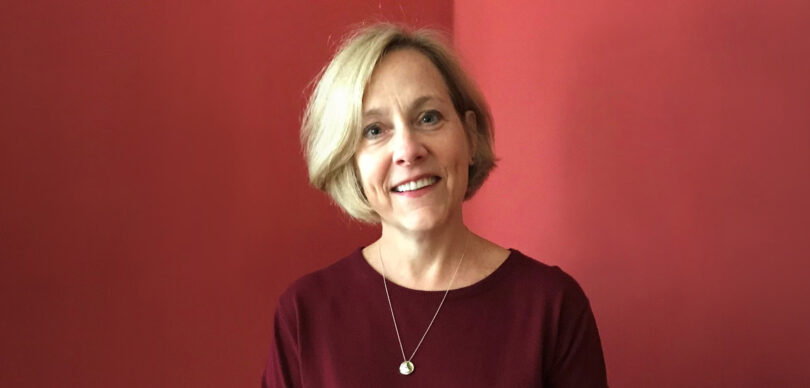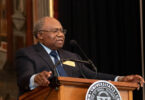Diane Marie Amann, the Emily and Ernest Woodruff Chair in International Law and faculty co-director of the Dean Rusk International Law Center in the School of Law, focuses her scholarship on what she describes as “the law of war and peace.”
When did you come to UGA and what brought you here?
I arrived at the University of Georgia in midsummer 2011, to take up the law school’s prestigious Emily and Ernest Woodruff Chair in International Law. My family accompanied me. My husband, Dr. Peter D. O’Neill, joined the faculty of the Franklin College of Arts and Sciences, where he is a tenured associate professor in the department of comparative literature and intercultural studies.
What are your favorite courses and why?
Exploring new ideas with students is such a joy that it is truly difficult to name a favorite course. As a teacher, I tend to be a bit of a utility player, and so have offered a dozen different courses since joining this faculty. They include public international law, domestic, transnational, and international criminal law, constitutional law, human rights, children and international law, refugee law, and the laws of war. My favorite courses are those in which the subject matter dovetails with current events so that we can enrich our learning by applying doctrines and theories to what is happening in our world. Classes like these come alive with student interest and energy.
How do you describe the scope and impact of your research or scholarship to people outside of your field?
In recent years I have come to describe my field as security governance; that is, the complex of subfields affecting human, national and collective security. It includes my scholarship, of course, but also my service as Special Adviser to the International Criminal Court Prosecutor on Children in and affected by Armed Conflict and my lecture on “Child Rights, Conflict, and International Criminal Justice,” just published in video and podcast formats at the United Nations Audiovisual Library of International Law. Perhaps a shorter label for my expertise is the law of war and peace—and the importance of that for every one of us is self-evident.
How does your research or scholarship inspire your teaching, and vice versa?
Students’ interests are a great indicator of what matters more broadly, and I find myself trying to respond to their inquiries in my own writing. Their enthusiasm for my current research, into the many unrecognized roles played by women during the post-World War II trials at Nuremberg, has carried me through many a day in a musty archive.
What do you hope students gain from their classroom experience with you?
Law’s rules and reasoning are of course important. They are not static, however, and so my goal is to prepare students for law’s dynamism. We strive both to examine the sources and rationales of rules and to evaluate their worth, sometimes from interdisciplinary perspectives. These critical thinking skills will aid students throughout their careers.
The one UGA experience I will always remember will be …
Bringing to campus more than a hundred scholars and practitioners, from as far away as Hong Kong and Kosovo, for a two-day conference celebrating the tenth birthday of IntLawGrrls, a blog by women in international law that I had founded in 2007. It began with the U.S. premiere, at Athens Ciné, of a human rights documentary. Then followed the presentation of a hundred scholarly papers on subjects as varied as transgender children’s rights and anti-bribery laws. Our most senior participant was Patricia Wald, an inspiring mentor (since departed) who had been the first woman judge on the U.S. Court of Appeals for the District of Columbia Circuit; our most junior were matriculating law and doctoral students, many of whom we were able to support through privately donated travel grants. The collegiality and intellectual ferment marked a high point for all of us at the law school’s Dean Rusk International Law Center.




